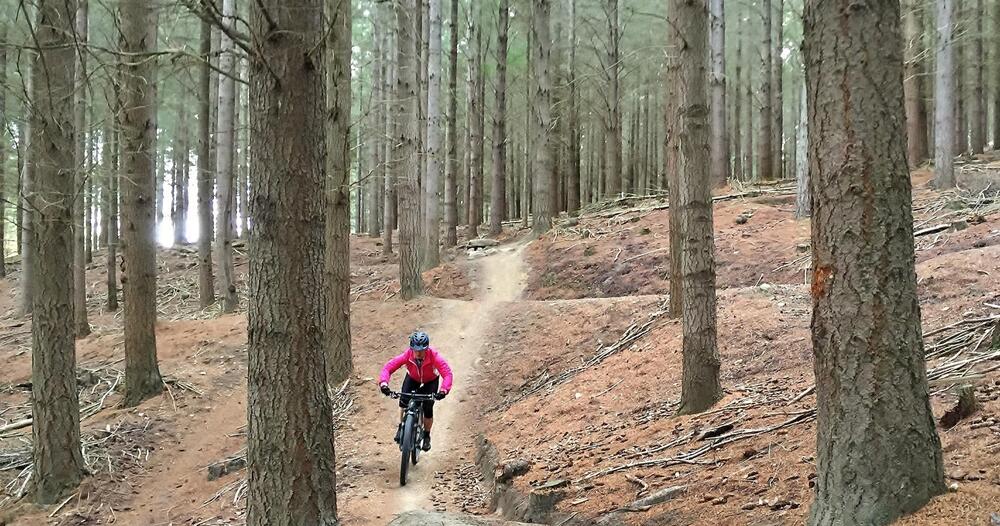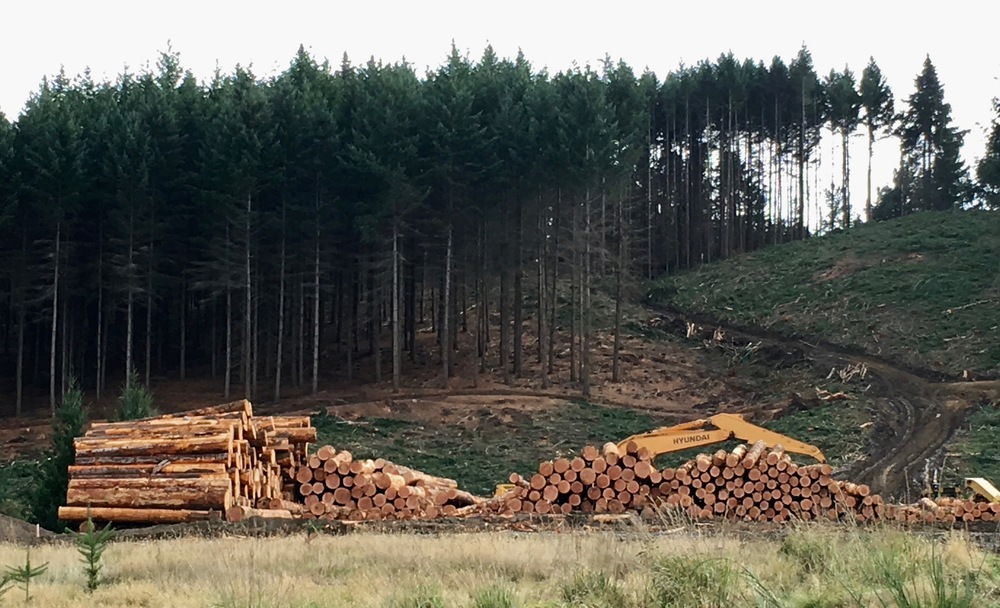Sticky Forest gets green light for residential development
Sue Wards
02 August 2024, 2:30 AM
 The Court has allowed development of much of Sticky Forest. PHOTO: Supplied
The Court has allowed development of much of Sticky Forest. PHOTO: SuppliedElected representatives have reacted in shock this week to a long-awaited Environment Court decision on the future of Wānaka’s Sticky Forest.
Sticky Forest is an area of approximately 50 hectares of forested land on Wānaka’s skyline between the Clutha River outlet and the Kirimoko residential subdivision.
A decision made on Wednesday (July 31) by Environment Court Judges J J M Hassan and S Tepania and Environment Commissioner J T Baines allows precedent-setting development potential for the area - which is adjacent to an Outstanding Natural Landscape (ONL).

Bike Wānaka said it was “gutted that it’s likely housing will replace much of the mountain biking in the Forest”. PHOTO: Lake Wānaka Tourism
The appellants in the case (Beresford, Bunker and Rouse) have been granted extensive development rights which would include residential and large-lot zoning for more than 100 houses, with potential for houses to be built across the ridge.
Queenstown Lakes District Council (QLDC) deputy mayor Quentin Smith told the Wānaka App the potential development is “greater than anyone had originally imagined” when it was first mooted.
“It will come as a huge shock and disappointment to the community,” Quentin said.
Quentin said on initial review it was “highly unusual” that the decision of the court provides for development on a prominent ridgeline directly adjacent to an ONL, adding “on face value this is out of step with usual resource management practises in this district.
The deputy mayor has requested further advice and said he will consider the complex, 131-page decision, over the weekend.

Timber harvested at Sticky Forest in 2018. PHOTO: Supplied
The issues around Sticky Forest have been described by independent commissioners as a “conundrum provided by the unique set of circumstances surrounding this land”.
The area is held by the Crown for around 1,800 descendants of 57 original Maori grantees who were given the land under the South Island Landless Natives Act in the 1960s as substitute land for settlement redress after they lost ownership of the Hāwea-Wānaka block known as ‘The Neck’.
Since then, the list of owners of the land has grown to around 1,800 individuals.
One of the grantee’s descendants, the late Mike Beresford, sought to have about 20 hectares of the forest rezoned to allow for residential development. His submission was rejected by the QLDC on the advice of independent commissioners, and the decision was appealed to the Environment Court. Mediation between the owners’ group and the QLDC was ordered by the court, but later cancelled and evidence was filed with the Environment Court last year.
The hearing took place in Queenstown this week.
Wānaka Upper Clutha Community Board chair Simon Telfer told the Wānaka App that, while he respected the Court’s decision, he was “very disappointed that we are likely to lose an important recreational asset for our growing town”.
“I am hoping some form of community access for walking and biking will continue over the medium term but that decision will rest with the new owners and their representatives,” he said.
Simon is also spokesperson for Bike Wānaka, which has sought to have Sticky Forest become a community asset, as a network of mountain biking and walking tracks have been formed there and are used regularly by members of the public and maintained by local groups.
He said he was “gutted that it’s likely housing will replace much of the mountain biking in the forest”.
“However we respect the right of beneficial owners to use this substitute land to attain economic sustenance. Iwi and hapū should never have had the original land at the Neck taken from them.”
Bike Wānaka was initiating contact with the new representative body to start to build a relationship, he added.
A QLDC spokesperson said the council was reviewing the Court’s decision and would comment publicly "at the appropriate time".






